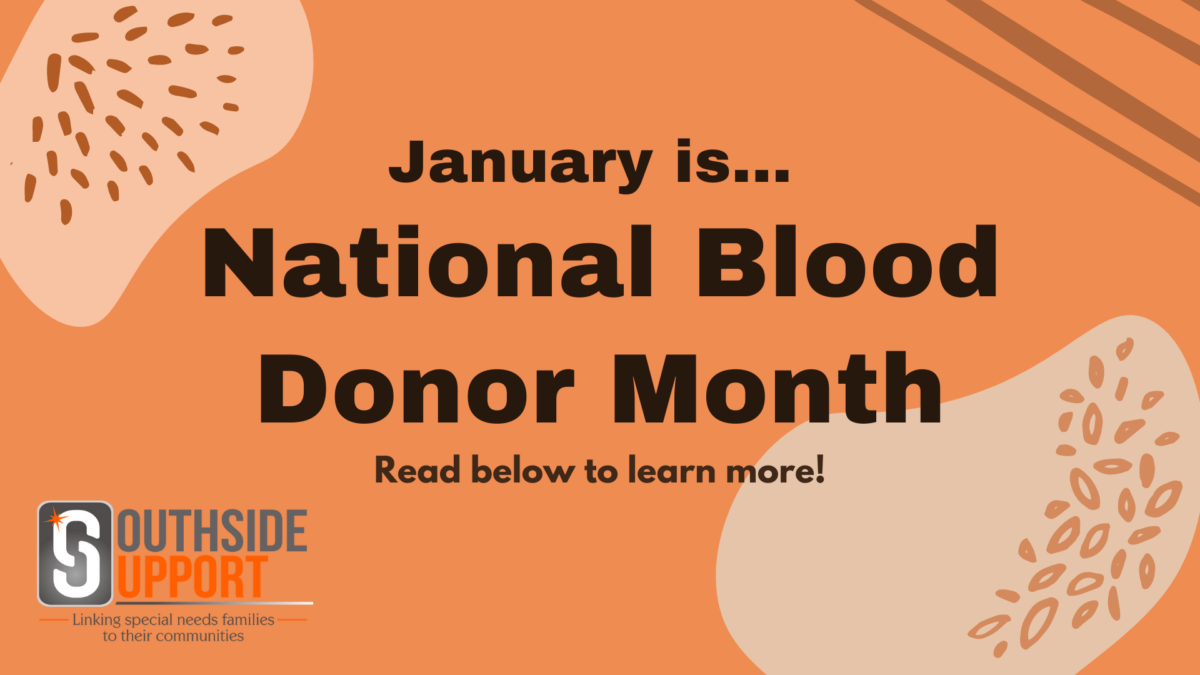Blood donation is the voluntary donation of platelets, plasma, red blood cells, or whole blood to help those in need. January was named National Blood Donor Month in 1969 due to the historically low rates of blood donated each year throughout January. The decline in donations during this time is largely attributed to inclement weather and a lack of donations throughout the holiday season, causing blood shortages nationwide. Covid-19 has further exacerbated this shortage by causing mass blood drive cancellations and forming barriers to donation.
Why is Donating Important?
Donating blood is a simple and safe procedure that can help save and improve the lives of others! One donation can help up to three lives as donations are used to help treat a variety of causes. Donations can be used to treat patients who have lost blood due to injury or surgery, help with blood clotting, are necessary for organ transplants and some cancer treatments, and are crucial in emergencies, including car accidents, birth complications, transfusions, and emergency transplants. Additionally, blood donations from donors with Covid-19 antibodies are now being used to treat patients with severe Covid-19 complications. To learn more about donating blood during Covid-19, click here.
Regular donation is a critical element in avoiding blood supply shortages and is a great way to support your community and help others! To find your local donation center or blood drive, click here! There are few barriers to donating, making the donation procedure a great option for people of all ages. For more information on the requirements to become a donor, click here.
What if I can’t donate?
If you are unable to donate, there are other ways to help! Volunteering with a local blood center is a great way to support your community without giving blood. Volunteers often aid donation centers by escorting donors, scheduling appointments, transporting donations, and much more. Another great way to get involved is by organizing a blood drive with a local organization. These can include schools, religious institutions, workplaces, and many more. Lastly, a meaningful way to help is by spreading awareness for the cause! This can be done by starting conversations with friends about donating, sharing information on social media, or sharing a personal story about how blood donation has impacted your life!
Donating blood saves lives and affects everyone. As January comes to an end, consider celebrating National Blood Donor Month by donating blood and supporting your local donation center!

